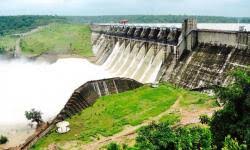

Water Resources Development Act - H.R.8
The House passed H.R.8 that would authorize nine new Army Corps of Engineers water resources projects, including navigation, flood control, harbor expansion and natural disaster damage projects. It would also deauthorize four projects, would authorize the corps to conduct feasibility studies for 12 possible projects, and would require the corps to expedite feasibility studies for more than 20 projects. It would require that most watershed assessments that take place after a major disaster be conducted at federal expense. It would require the corps to conduct a study on the ability of the corps to carry out its missions and the potential effects of transferring the corps from the Defense Department to another federal agency.
Summary
H.R. 8 authorizes Army Corps of Engineers (Corps) civil works activities and builds on previous reform efforts to ensure improvements are made to the Nation’s ports, inland waterways, locks, dams, flood protection, ecosystem restoration, and other water resources infrastructure. This bill is the third WRDA since 2014, returning regular congressional oversight to the Corps Specific provisions of the bill are below.
Title I eliminates barriers to project delays and improves the utility of the contributed and advanced funds provisions from previous WRDA laws by ensuring the Corps may accept funds from non-federal sponsors to advanced studies and project elements. The Title maintains reforms that have allowed for greater local participation in project selection and directs the National Academy of Sciences to evaluate the current organizational structure of the Corps’ civil works functions, identify impediments to efficient project delivery, and provide recommendations to Congress.
Title I also improves oversight and transparency by requiring the Secretary to support greater awareness of the Corps’ annual report and requires the Corps to directly engage stakeholders in the development of implementation guidance. Additionally, it reauthorizes both the Levee Safety Initiative and the National Dam Safety Program through 2023 to help protect American communities from flooding.
Title II authorizes feasibility studies for water resources development projects which have been submitted to Congress under the WRRDA 2014 7001 process and vetted by the Committee. A full list can be found in Section 201. The Title authorizes additional feasibility studies for projects on the Lower Mississippi River and the St. Louis Riverfront. Finally, the Title directs the Secretary to expedite completion of ongoing feasibility studies for 20 projects.
Title III directs the Secretary to identify $3 billion in water resources development projects authorized by Congress that are no longer viable for construction. The final list of projects is deauthorized unless Congress passes a joint resolution of disapproval. Title III sunsets inactive project authorizations to prevent future project backlogs.
Title III also authorizes modifications to existing projects in Harbor/South Bay, California; Lakes Marion and Moultrie, South Carolina; Milwaukee Harbor, Wisconsin; and Bridgeport Harbor, Connecticut. Further, the Title makes necessary conveyances of property and addresses ongoing projects in Clatsop County, Oregon, Kissemmee River Restoration, Florida, Lytle and Cajon Creeks, California, and Yuba River Basin, California.
Title IV authorizes 9 new projects to improve navigable systems, strengthen flood-risk management, provide hurricane and storm damage risk reduction, and restore the environment in Texas, New York, Hawaii, Florida, New Mexico, Georgia, and Kentucky.
Finally, H.R. 8 reaffirms that WRDA should be considered by Congress every two years.
The Rules Committee Print strikes section 102 of the bill to ensure compliance with the Rules of the House and the Congressional Budget Act.
The Committee on Transportation and Infrastructure provided the following highlights of H.R. 8.
Background
The Army established the Corps as a permanent branch in 1802. The Corps has contributed to the nation both through military construction and through civil works. During the19th century, the Corps built coastal fortifications, constructed lighthouses, helped develop jetties and piers for harbors, carefully mapped navigation channels, surveyed roads and canals, eliminated navigational hazards, explored, mapped the Western frontier, and constructed buildings and monuments in the Nation’s capital. In the 20th century, the Corps became the lead federal flood control agency and significantly expanded its civil works activities, becoming among other things a major provider of hydroelectric energy and the country’s leading provider of recreation. “Under its civil works program, [the U.S. Army Corps of Engineers] plans, builds, operates, and maintains a wide range of water resource facilities. Its civil works responsibilities are principally to support navigation, reduce flood and storm damage, and protect and restore aquatic ecosystems.” Corps activities require congressional authorization, which can be project-specific, programmatic, or general. However, authorizations are the first step for a Corps study or project to proceed. Additional “action on an authorization requires funding.”
Authorizations for Corps activities traditionally have been provided WRDAs, “making certain projects and activities eligible for receiving federal funding.” WRDAs also establish policies for Corps civil works activities. Historically, water resources legislation has been enacted every two years to provide oversight of and policy direction to the Administration and the Corps of Engineers. WRDA 2018 continues that important 2-year cycle.
Cost
A Congressional Budget Office (CBO) estimate is not currently available. The bill does direct the deauthorization of $3 billion in water resources development funding for projects that are no longer viable in order to offset costs associated with this legislation.

